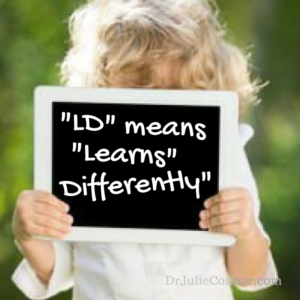
When people ask me who I knew in the UK before I left Kenya, I offer a quick “nobody” in response. My Scottish friends call it brave. Heroic. It is not. When you grow up with the smell of poverty and the sound of hunger, a craving to end the misery sticks onto the very clothes you wear. You then grow up to realize that the career you chose, or was chosen for you, has so much to offer but your country treats it like a spam email.
I therefore left to seek better. Granted, there are other countries in the world that pay nurses more than the UK. However, I learnt earlier on that I can make as much money as I want while still working in the UK. However, my ultimate goal is in job satisfaction and bless my heart, off days. I live for my holidays. My holidays are my writing and reading days. My alter ego days.
Further, the United Kingdom has expanded roles for nurses which I know time will never suffice for me to exhaust. It is worth noting that UK has one of the most advanced technologies in healthcare. With that comes an increased life expectancy. It is not a miracle to find an 80-year-old here doing their grocery shopping and even braving the elements to go out for a walk or a jog.
With increased life expectancy comes a demand on specialized healthcare. It is not enough to talk about primary prevention in the UK. We go to tertiary prevention and screening as well as rehabilitation. It is for this purpose that I want to take you through some roles of nurses in the UK.
From the outset, let us note that United Kingdom has dissected nursing into adult nursing, paediatric nursing, midwifery and mental health nursing. Nurses graduate with a degree only in any of those fields. It has the advantage of helping nurses concentrate in their areas of expertise. It has the drawback of limiting what a nurse can do or not do.
If you are privileged enough to only work in the UK, then a basic degree in nursing within the UK is a good idea. If you are in Africa, and specifically Kenya, I highly advise that you study in our country, learn everything, then specialise later. We have no luxury of having many nurses to do only little bits here and little bits there. When you show up to the UK with such a background, you become an unstoppable meteor.
LEARNING DISABILITY NURSE
A quick look at the State Licensing Board of Texas in the United States, this role does not exist for nurses in the USA. Yet in the united Kingdom, you have an opportunity to work with children and adults who have learning difficulties. You will support them in their mental health and assist them attain their highest quality of life. It is a heavily regulated area that demands empathy and patience of the gods. It pays better than general nursing if money is what is on your mind. However, just like working in a care home, if money is all that drives you, you will be a terrible nurse.

FUNCTIONAL ASSESSOR NURSE
This is a first cousin to the Learning Disability role. You are involved in meeting people with learning disabilities and determining how their difficulties impact on their day to day lives. It is your duty to make detailed clinical reports which are sometimes used at the royal courts to seek care packages for these individuals.
Care packages are arrangements from the government on how to best cater for people who are abled differently. For instance, they have some stipends that they receive as well as their carers on a monthly basis to help them get along. Human life in the UK does matter and they show it most in how they respond to the needs of the people abled differently.
You will see it in their buses which are adapted for wheelchair users. You will see it in their parking spaces where they are quite strict with Blue Badge Holders. You must be able to interpret how activities of daily living are affected and to what degree by the particular challenge the person has.
INTRAVENOUS THERAPY NURSE
Australia and USA have also highlighted this role. This is a nurse responsible for all matters fluids and fluid products. Your role is to fix cannulae and administer while monitoring fluids. In the UK, you can work from different people’s homes and residential areas. Some hospitals have these nurses based in theatres and critical care units. Some NHS hospitals will sponsor you to study in these roles.
AESTHETIC/COSMETIC NURSE
Self-confidence is a net total of what is within a person and what we see. People go for cosmetic products to feel good about themselves or even correct a fault caused by an accident or a disease. Cosmetic nursing or aesthetic nursing allows you to practise in this highly rewarding field. You may work privately with a surgeon or a nurse practitioner or you may establish your own unit. In the UK however, it is a requirement from the Nursing and Midwifery Council that you undertake a Prescribing Course as a nurse. Once you take this course, you are free to prescribe medication. You need this because one of the most commonly used medication in aesthetic nursing is BOTOX which is a prescription only product.
The University of Manchester offers a six-month certified course in cosmetic nursing. There are other private facilities that teach this including one near me in Edinburgh.
ORTHOPAEDIC NURSE SPECIALIST
How well do you relate with bones and muscles? Tendons and ligaments? Then this is your field. Remember that this is different from being a regular surgical nurse. You specialise in nothing but the musculoskeletal system. This role further extends to saving limbs from amputation as much as possible. Orthopaedic surgeons rely heavily on orthopaedic nurse specialists to see patients through admission to discharge.
REHABILITATION NURSE SPECIALIST
Rehabilitation in Kenya is unfortunately tied to drug and alcohol misuse. However, this is a role where you help people get back to their normal activities before an accident or a disease. Within it, you will find nurses who rehabilitate people after amputation of any limb. They help people to adapt together with the occupational therapists and physiotherapist.
I have noted with appreciation that after an amputation which is considered an acute service, patients do not get discharged home. This is a telling difference from how we do it in Kenya. Back home, patients get to lose their limbs and get discharged home to deal with the loss as outpatients. This is sad.
United kingdom has what I would equate to halfway houses. Patients get discharged through these community hospitals to help them deal with the loss of leg or arm to cite two examples. Nurses in these hospitals have been thoroughly trained in managing complications of amputations like severe infections of the joints and phantom pain of the amputated limb.
Phantom pain is a type of pain that is felt in the part of body that was amputated. For instance, let us say someone lost a left leg. They may feel pain in the foot of the left leg. The leg is no longer physically there but the brain still registers the pain. It may be a very confusing phenomenon both for patients and their families. This is where you as the nurses serve as an educator and rehabilitator.
Another subbranch is a Stroke Rehabilitation Nurse. After a stroke, the brain “forgets” some functions and it may need to be “reminded.” This is where you come in as a stroke rehabilitation nurse. It is so important as a role that every hospital worth her salt in the UK boasts of a specialized stroke ward. Impeccable.
DIABETES SPECILAIST NURSE
As a girl interested in trends in the world of diabetes, I would be selfish not to highlight this role. There is money in the field of diabetes if money is what you want. However, you must be willing to create and maintain rapport with patients and their families who are dealing with diabetes. You need a passion for patient education and lifestyle modification. You must be willing to research and participate in policy formulation. The University of South Wales in the UK is one of the globally acknowledged institutions that offer specialised education in diabetes nursing.
HEALTH INFORMATION NURSE
Suppose you were born a data analyst. A computer nerd, perhaps a statistician but nursing happened. You have a chance to pursue your high school dream as a health informatics nurse. The University of Swansea has set itself apart in training nurses and other healthcare providers in this master’s degree.
You must have an undergraduate degree to qualify as a student for this course. I have seen nurses who are tired of clinical nursing branch into health information and thrive to be the best in that field. You do not need to have a background in data systems. You however have an advantage over those whose background is in computer systems and not healthcare.
NEPHROLOGY NURSE
I extensively covered the different areas of work for nurses in kidney care. What I may not have said is that Nephrology as a specialty is still a developing role in the UK. I have no idea how they missed that. I cannot explain how Kenya, a third world country, realized years ago the gap in kidney care and created a specialized course for nurses while the UK did not. However, the University of Sheffield and King’s College in London are two examples of universities where they have taken kidney disease with the specificity it requires.
NHS hospitals are advertising jobs of a specialised nurse at a Band 7. General nurses enter the profession at Band 5. At Band 7 you are a nurse specialist. A quick look through the module content at the University of Sheffield tells me that any Kenyan nurse with a higher diploma in renal nursing only neds a Bachelor of Science degree in nursing to clinch this position. It is an enviable role because it gives you autonomy and flexibility with patient care. You get to make excellent use of what we covered back home. All you will need is a rigorous induction to how different NHS hospitals work.
With these, It is my sincere hope that you will appreciate that coming to the UK is still a right move. That it is the best place for a nurse to find themselves and grow to their wildest dreams. The UK is calling. Pick up.

You see, when I say a nurse is a jewel, I think of you as one of them.
Oncology nursing? What about it?
Hi Paul, I covered that already please see previous posts
This is very insightful.
Thank you.